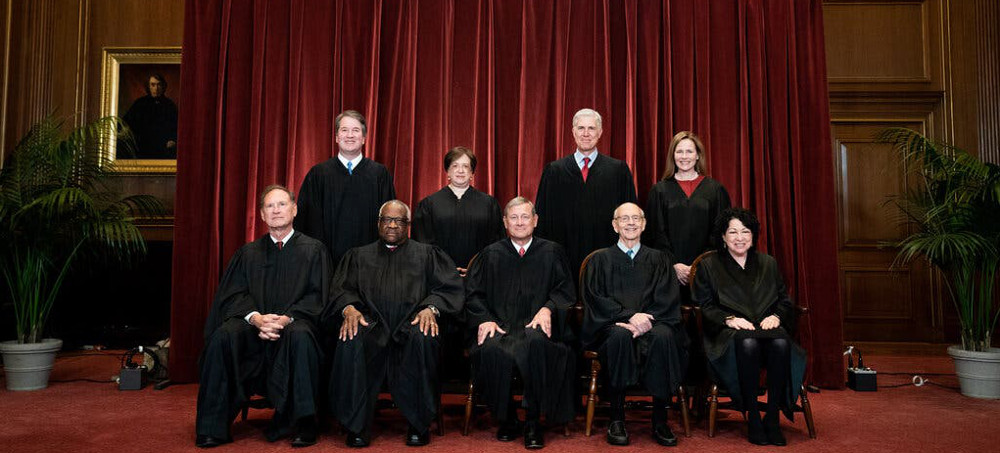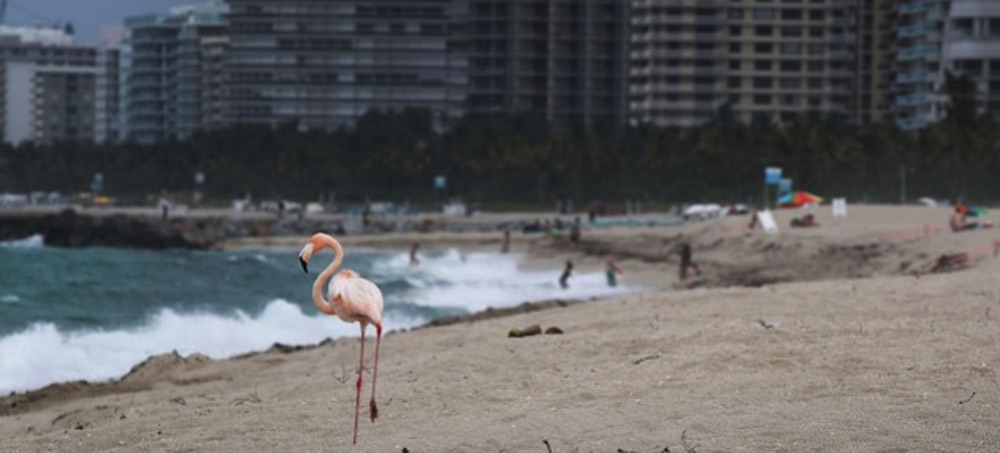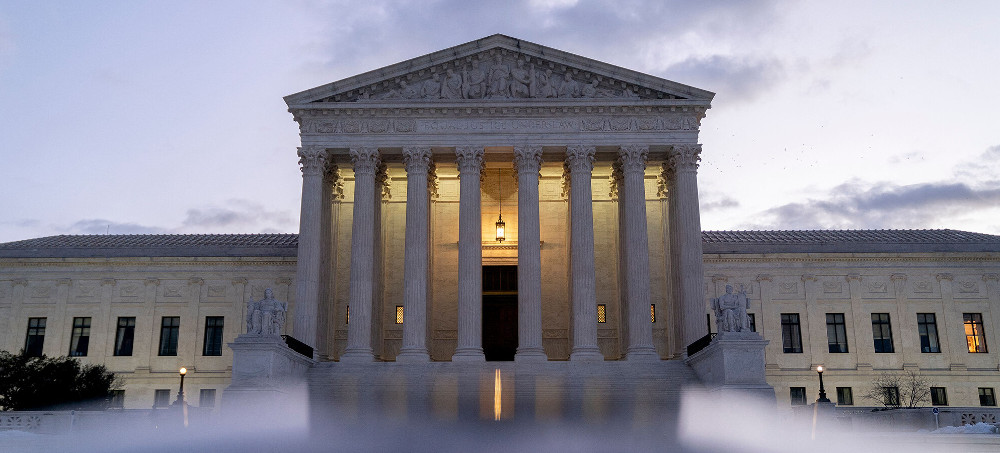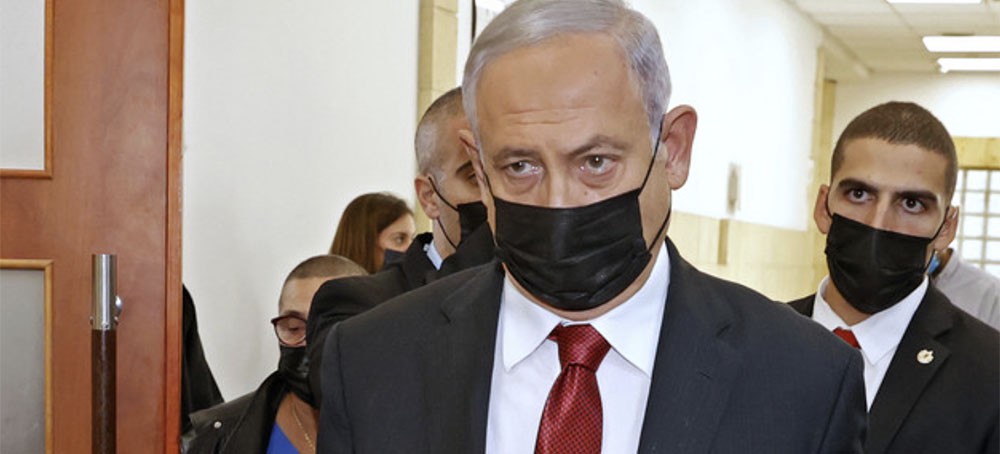Live on the homepage now!
Reader Supported News
By upholding Alabama’s gerrymandered districts, the supreme court is laying the groundwork for ending voting rights and political power for Black people
And just as the Dred Scott decision laid the groundwork for similar rulings that led to the continuation of white political power at the expense of Black political power, so too does the Miller case lay the groundwork for ending voting rights and political power for Black people in this country and a path towards white political power at all levels of government.
Some reading this will gasp and accuse us of misusing an explosive pre-reconstruction case to make a racially charged argument. But the reality is that the conservative gang of justices, under the leadership of Chief Justice John Roberts, had already joined its pre-1954 brethren who had indoctrinated Jim Crow policies and the disenfranchisement of Black voters.
First through the supreme court’s abolition of section 5 of the Voting Rights Act (VRA) in the 2013 Shelby v Holder, another Alabama case, they empowered every Republican-controlled state to enact a series of voter suppression laws targeting Black people with surgical precision.
Next, through the 2018 Abbott v Perez case, the court took its first stab at the second protective tool in the VRA, section 2 by ruling to keep in place a blatantly racially gerrymandered map in Texas through what Justice Sonia Sotomayor called “a disregard of both precedent and facts at the cost of democracy”. Then again, in 2021, in the Brnovich v DNC case, the court finally took the knockout punch to the remaining power left in the VRA’s Section 2, by leaving two Arizona bills in place, which as noted by Justice Elena Kagan in her dissent, “disproportionally affected minority citizens’ right to vote”.
So, Tuesday’s Merrill case is just a link in a chain of US supreme court decisions meant to end Black voting protections and political power in this country. Even though Chief Justice Roberts did not join his usual comrades, he signaled in his dissent that he intends to shred what is left of Section 2 when the full case reaches the supreme court.
Moreover, by using the court’s shadow docket, the court has shown a greater sin in operation. While the conservative gang of six argue that they are simply staying the case because of the lower court’s ruling proximity to upcoming elections and not ruling on the merits of the case, Justice Kagan, in her dissent makes it clear that “this case is one more in a disconcertingly line of case in which the Court uses its shadow docket to signal or make changes in the law”. The conservative majority inappropriately stretched the meaning of “close election” to force the usage of a preliminary injunction standard found in Purcell v Gonzalez to create this unnecessary and hurtful outcome.
In using the shadow docket in this manner, the conservative gang are not operating as judges evaluating the constitutionality of laws in a neutral manner, but have ignored legal precedent and become a partisan weapon of the Republican party.
By allowing Alabama to use its racially gerrymandered congressional map to dilute Black voting power, the Republican party will continue to send six representatives to Congress next year instead of the five that would have probably resulted from fair maps. At a time when the Republican party is trying to take back power in the House of Representatives, it could not afford to lose a congressional seat in Alabama, and the conservative gang ensured this would not happen. In this regard, the current court is continuing a trend last seen when another conservative majority essentially decided the results of the 2000 presidential election, an election in which Florida’s results were affected by racially disproportionate challenges to voting rights on the basis of inaccurate accusations of criminal convictions.
But just as history of the post-Reconstruction and segregation era supreme court shows the motivation and pathway of this current supreme court, history also shows the pathway to victory, and we believe the following three recommendations are critical, even if just a beginning.
First, President Biden must appoint an attorney to the supreme court who has been a champion for civil and voting rights. When nominating an appointment to the supreme court, Lyndon B Johnson boldly chose a champion of civil rights to carry that legacy forward to the court without fear of reprisal. In doing so he was not being expedient but doing what the moment required. The moment requires President Biden to be unapologetically bold in the same manner and nominate a justice like Sherrilyn Ifill, Barbara Arnwine, Kristen Clarke or Judith Browne Dianis who all have great legal scholarship and have been defenders of democracy.
Second, Democrats must expand the court. Article 3 of the US constitution does not specify how many justices are required on the supreme court. The Democrats in Congress should use their power given to them by Black voters and increase the number of justices from nine to 11.
Third, we must have a serious discussion around and advocate for structural solutions which extend beyond which shape a gerrymandered map takes or which entities are entrusted to create those maps.
We must immediately begin to rethink what majority rule means for historically attacked racial and ethnic groups, and how do we create mechanisms that address these limitations in ways that make majority rule and this entire democracy more fair and effective. Concepts such as those advocated by the civil rights giant Lani Guinier, such as proportional representation, should receive full debate. Roberts has always been hostile to such mechanisms, and in doing so is serving as an impediment not only to Black voting rights but to a more inclusive democracy that would benefit all voters.
To make these recommendations a reality, Black people, other marginalized groups and allies must continue to organize at the local level, state level and national level to make clear our demands. History shows that through organizing, major court victories such as Brown v Board of Education, which ended segregation in schools, were won. In doing so, Black people in America can build political power that protects voting rights beyond an act that requires reauthorization every 20 years or so, and we can take our destinies out of the hands of people in power who still believe that a Black man – and woman – has no rights that a white man has to respect.
 The three Supreme Court justices appointed by President Donald J. Trump have shaped a majority in many cases that is more moderate than the most conservative justices want (photo: Erin Schaff/The New York Times)
The three Supreme Court justices appointed by President Donald J. Trump have shaped a majority in many cases that is more moderate than the most conservative justices want (photo: Erin Schaff/The New York Times)
The attacks on voting rights go hand in hand with current assaults on Black history and exposing histories of foundational American white supremacism.
Late last month, three federal district court judges ruled that the map violated the Voting Rights Act by giving Black voters — 27 percent of the state’s population — just one majority congressional district where they might be able to elect a representative; the state’s six other districts would be majority white. The lower court saw the racial gerrymandering for what it was: unconstitutional. The Supreme Court has now said that for the 2022 election cycle, at least, that’s fine.
This is hardly the first blow in the courts against the 56-year-old Voting Rights Act, but it could presage a decisive one. The Supreme Court will hear further arguments over the Alabama map, but the decision to freeze the lower court’s order while appeals go forward shows a cavalier openness to racial gerrymandering shaping this year’s elections and beyond.
The right-wing justices claimed that Alabama does not have sufficient time to redraw its congressional maps before the 2022 primary elections in May, as the lower federal court had rightly ordered. For the Supreme Court majority, potentially violating the rights of Black voters is preferable to a somewhat cumbersome but feasible map-drawing process.
More troubling still, through the Alabama case, the Supreme Court has said that it will explicitly address the scope of a key provision of the Voting Rights Act: Section 2, which allows voters to seek judicial relief if they believe that a state or local government has denied or limited their voting rights on the basis of race or other minority status. In his opinion, Republican Justice Brett Kavanaugh argued that the precedents set under Section 2, to protect minority votes from dilution, have “engendered considerable disagreement and uncertainty” and should thus be addressed directly by the court next term when it considers the Alabama map case appeal in full.
Plaintiffs in the Alabama case have amply demonstrated the need for two majority-Black congressional districts to be drawn if the state is to meet Section 2’s provisions against racialized vote dilution. Kavanaugh’s argument sets the stage for the right-wing Supreme Court majority to hollow out this provision, as it has done with other Voting Rights Act protections in previous years.
In 2013, Republican justices entirely gutted Section 5 of the act, which asserted that states and localities with a history of racial discrimination must obtain federal approval for any electoral changes. At the time, Chief Justice John Roberts said that the provision was no longer necessary because “our country has changed.” (Roberts dissented from Monday’s decision in the Alabama case.) It was an extraordinary example of what the late Jamaican American philosopher Charles Mills called “white ignorance,” which should not be confused with a simple lack of relevant information. There is no innocence in white ignorance, but rather a historically entrenched “white delusion of racial superiority” that now finds expression in a “strategic ‘colorblindness.’”
“We’ve got to put the skin pigmentation issue behind us,” Alabama Republican Rep. Mo Brooks said Monday in support of the Supreme Court’s decision, echoing the favored refrain of racists: that it is racist to attend to racial oppression. White ignorance, for Mills, is that cognitive resistance produced by historic white privilege, which leaves people “intent on denying what is before them.” And before us, which we must not deny, is a ferocious moment of organized white supremacist backlash, undoing ever-imperiled rights for Black voters.
I have previously noted that today’s Republican project is, at base, in service of the “rewhitening of America,” as Cedric Robinson, the late scholar of the radical Black tradition, described the efforts after Reconstruction to ideologically entrench white standing. The attacks on voting rights go hand in hand, in the very same Republican state agendas, with current assaults on Black history and exposing histories of foundational American white supremacism.
In her dissent to Monday’s decision, liberal Justice Elena Kagan noted that the ruling “forces Black Alabamians to suffer what under the law is clear vote dilution.” She noted, too, that the court’s significant decision was one of many made hurriedly on its “shadow” docket — a term that refers to the practice of issuing emergency orders and summary decisions without the Supreme Court’s usual briefing process and oral arguments. The court’s growing use of shadow docket decisions has drawn censure from liberal and progressive legal scholars.
“Today’s decision is one more in a disconcertingly long line of cases in which this Court uses its shadow docket to signal or make changes in the law, without anything approaching full briefing and argument,” Kagan wrote.
It takes a misplaced belief in this far-right-led court’s interest in justice — a white ignorance of sorts — to believe that a full hearing of the Alabama map case would ensure protections for Black voters. It would be equally naive to hope that, in light of the Supreme Court’s latest attack on voting rights, conservative Democratic Sens. Joe Manchin and Kyrsten Sinema will change course on ending the filibuster to allow Congress to pass new voting rights laws. The senators’ commitment to corporate interests over those of people, especially Black people, will not be shaken. The inability, or indeed unwillingness, on the part of Democratic leadership to keep the two senators in line when systematic, racialized disenfranchisement is on the table should be seen as a shameful failure.
“Congress cannot sit by and watch as Americans’ most fundamental democratic freedoms are eviscerated by right-wing partisan justices,” the Congressional Progressive Caucus tweeted in response to the Supreme Court ruling. With the state of the judicial system as it is, we cannot forgive Democratic leaders who continue to directly and indirectly aid the agenda of far-right politicians and judges. White ignorance, as Mills framed it, has never been an acceptable excuse.
 Senior U.S. District Court Judge Jeffrey White ruled today that the U.S. Fish and Wildlife Service (FWS) prematurely removed federal Endangered Species Act protections for gray wolves. (photo: Getty)
Senior U.S. District Court Judge Jeffrey White ruled today that the U.S. Fish and Wildlife Service (FWS) prematurely removed federal Endangered Species Act protections for gray wolves. (photo: Getty)
“Today’s ruling is a significant victory for gray wolves and for all those who value nature and the public’s role in protecting these amazing creatures. Restoring federal protections means that these vitally important animals will receive the necessary support to recover and thrive in the years ahead.”– Jamie Rappaport Clark, CEO and president at Defenders of Wildlife
“Today’s ruling is a significant victory for gray wolves and for all those who value nature and the public’s role in protecting these amazing creatures,” said Jamie Rappaport Clark, CEO and president at Defenders of Wildlife. “Restoring federal protections means that these vitally important animals will receive the necessary support to recover and thrive in the years ahead.”
“Wolves need federal protection, period,” said Kristen Boyles, attorney at Earthjustice. “The Fish and Wildlife Service should be ashamed of defending the gray wolf delisting, and it should take immediate action to restore Endangered Species Act protections to all gray wolves, including those in Idaho, Wyoming, and Montana.”
Over the past decade, a series of federal government decisions eliminated federal protections for gray wolves. Protections were previously removed for wolves in the northern Rocky Mountains and in November 2020, FWS announced its decision to remove federal protections for gray wolves throughout the remaining Lower 48 states, despite a dearth of scientific evidence to justify the move. The decision, which took effect on January 4, 2021, affected gray wolves in at least 44 states, most prominently in the western Great Lakes, the central Rockies and Pacific Coast. The removal of protections had immediate consequences for wolves, leaving them vulnerable to hunting, trapping, poisoning and other lethal measures.
By restoring these protections, gray wolves will be able to reinhabit parts of their historic range across the United States. As wolves are top predators, their expansion will have major ecological benefits. Predation by wolves regulates deer and elk populations, protecting plants from over-browsing, thereby improving habitats for other wildlife such as songbirds, beaver, and fish. Wolves also promote the health of elk and deer herds by preying on sick and diseased animals.
Despite these renewed protections, Defenders of Wildlife will continue to work with livestock producers, ranchers, and others sharing the landscape with wolves to implement strategies to reduce wolf-livestock conflicts. For decades, Defenders has engaged in collaborative relationships with tribal partners, wildlife biologists, and ranchers to promote coexistence programs that help protect wolves and support agricultural goals. Coexistence measures – like range riders, electric fencing and strategic grazing practices – are essential tools in protecting and restoring wolves.
 Neil Young has urged Spotify employees to leave the company, saying Spotify CEO Daniel Ek 'is your biggest problem.' (photo: Gary Miller/Getty)
Neil Young has urged Spotify employees to leave the company, saying Spotify CEO Daniel Ek 'is your biggest problem.' (photo: Gary Miller/Getty)
Young's statement on Monday came as Spotify CEO Daniel Ek doubled down in support of controversial podcaster Joe Rogan.
"To the workers at SPOTIFY, I say Daniel Ek is your big problem — not Joe Rogan. Ek pulls the strings," Young wrote on his website.
"The goals stated by Ek are about numbers — not art, not creativity," Young added.
In January, Young and singer-songwriter Joni Mitchell requested their music be taken off the platform in protest of Rogan's continued support from Spotify.
That same month, 270 doctors, nurses, scientists, and educators issued an open letter calling on Spotify "to mitigate the spread of misinformation on its platform" after a December 31 episode of the Joe Rogan Experience podcast featured Robert Malone, a scientist spreading anti-vaccine conspiracies, who referred to the pandemic as "mass formation psychosis."
Rogan, the letter said, "has a concerning history of broadcasting misinformation, particularly regarding the COVID-19 pandemic. By allowing the propagation of false and societally harmful assertions, Spotify is enabling its hosted media to damage public trust in scientific research and sow doubt."
At a company town hall last week, Ek defended Spotify's decision to keep streaming Rogan's podcast.
"If we want even a shot at achieving our bold ambitions, it will mean having content on Spotify that many of us may not be proud to be associated with," Ek said, according to The Verge. "Not anything goes, but there will be opinions, ideas, and beliefs that we disagree with strongly and even makes us angry or sad."
On Sunday, Ek backed the Rogan again after a viral video resurfaced showing the podcast host using the N-world multiple times on his show.
"I do not believe that silencing Joe is the answer," Ek in a staff memo first reported by Axios' Sara Fischer.
Spotify paid more than $100 million to acquire the rights to Rogan's popular podcast, according to the Wall Street Journal. His show was added to the streaming platform in September 2020.
Spotify did not immediately respond to Insider's request for comment on Young's latest statement.
 A man crosses the Central Intelligence Agency seal in the lobby of CIA Headquarters in Langley, Virginia, Aug. 14, 2008. (photo: Saul Loeb/Getty)
A man crosses the Central Intelligence Agency seal in the lobby of CIA Headquarters in Langley, Virginia, Aug. 14, 2008. (photo: Saul Loeb/Getty)
A partially redacted letter from Sens. Ron Wyden, D-Ore., and Martin Heinrich, D-N.M., said the program existed outside the normal bounds of oversight.
Sens. Ron Wyden of Oregon and Martin Heinrich of New Mexico sent a letter to top intelligence officials calling for more details about the program to be declassified. Large parts of the letter, which was sent in April 2021 and declassified Thursday, and documents released by the CIA were blacked out. Wyden and Heinrich said the program operated “outside the statutory framework that Congress and the public believe govern this collection.”
There have long been concerns about what information the intelligence community collects domestically, driven in part by previous violations of Americans’ civil liberties. The CIA and National Security Agency have a foreign mission and are generally barred from investigating Americans or U.S. businesses. But the spy agencies’ sprawling collection of foreign communications often snares Americans’ messages and data incidentally.
Intelligence agencies are required to take steps to protect U.S. information, including redacting the names of any Americans from reports unless they are deemed relevant to an investigation. The process of removing redactions is known as “unmasking.”
“CIA recognizes and takes very seriously our obligation to respect the privacy and civil liberties of U.S. persons in the conduct of our vital national security mission,” Kristi Scott, the agency’s privacy and civil liberties officer, said in a statement. “CIA is committed to transparency consistent with our obligation to protect intelligence sources and methods.”
The CIA released a series of redacted recommendations about the program issued by an oversight panel known as the Privacy and Civil Liberties Oversight Board. According to the document, a pop-up box warns CIA analysts using the program that seeking any information about U.S. citizens or others covered by privacy laws requires a foreign intelligence purpose.
“However, analysts are not required to memorialize the justification for their queries,” the board said.
Both senators have long pushed for more transparency from the intelligence agencies. Nearly a decade ago, a question Wyden posed to the nation’s spy chief presaged critical revelations about the NSA’s mass-surveillance programs.
In 2013, Wyden asked then-Director of National Intelligence James Clapper if the NSA collected “any type of data at all on millions or hundreds of millions of Americans.” Clapper initially responded, “No.” He later said, “Not wittingly.”
Former systems administrator Edward Snowden later that year revealed the NSA’s access to bulk data through U.S. internet companies and hundreds of millions of call records from telecommunications providers. Those revelations sparked worldwide controversy and new legislation in Congress.
Clapper would later apologize in a letter to the Senate Intelligence Committee, calling his response to Wyden “clearly erroneous.”
According to Wyden and Heinrich’s letter, the CIA’s bulk collection program operates outside of laws passed and reformed by Congress, but under the authority of Executive Order 12333, the document that broadly governs intelligence community activity and was first signed by President Ronald Reagan in 1981.
“It is critical that Congress not legislate without awareness of a ... CIA program, and that the American public not be misled into believe that the reforms in any reauthorization legislation fully cover the IC’s collection of their records,” the senators wrote in their letter. There was a redaction in the letter before “CIA program.”
Additional documents released by the CIA Thursday also revealed limited details about a program to collect financial data against the Islamic State. That program also has incidentally snared some records held by Americans.
Intelligence agencies are subject to guidelines on the handling and destruction of Americans’ data. Those guidelines and laws governing intelligence activity have evolved over time in response to previous revelations about domestic spying.
The FBI spied on the U.S. civil rights movement and secretly recorded the conversations of Dr. Martin Luther King. The CIA, in what was called Operation Chaos, investigated whether the movement opposing the Vietnam War had links to foreign countries.
“These reports raise serious questions about the kinds of information the CIA is vacuuming up in bulk and how the agency exploits that information to spy on Americans,” Patrick Toomey, a lawyer for the American Civil Liberties Union, said in a statement. “The CIA conducts these sweeping surveillance activities without any court approval, and with few, if any, safeguards imposed by Congress.”
 In this file photo from 2017, Yemenis carry the bodies of a child killed in a reported air raid in Sanaa. (photo: Yahya Arhab/EPA)
In this file photo from 2017, Yemenis carry the bodies of a child killed in a reported air raid in Sanaa. (photo: Yahya Arhab/EPA)
The Norwegian Refugee Council urges the reinstatement of monitors after their ejection opened the door to ‘unchecked, horrific violations’.
The ejection of monitors had opened the door to “unchecked, horrific violations”, the Norwegian Refugee Council said on Thursday, urging their reinstatement.
It said 823 civilians were killed or injured in the four months before the end of monitoring, and 1,535 in the four months after their departure.
The report added that civilian casualties caused by air raids, a tactic favoured by the Saudi-led coalition battling Houthi rebels, had multiplied by 39 in the same period.
“The removal of this crucial human rights investigative body took us back to unchecked, horrific violations,” country director Erin Hutchinson said in a statement.
“Who is responsible for the deaths of these children and families? We will probably never know because there is no longer any independent, international and impartial monitoring of civilian deaths in Yemen.”
The UN Human Rights Council voted to disband its Group of Eminent International and Regional Experts on Yemen in October, in a move that was strongly criticised by rights groups.
It was the first time that the United Nations’ top rights body had rejected a draft resolution since it was founded in 2006. The resolution, brought forward by European nations and Canada, was defeated by 21 votes to 18.
“The people of Yemen have been abandoned. Betrayed. Yet again,” Amnesty International’s secretary general Agnes Callamard said at the time.
Hundreds of thousands of people have been killed directly or indirectly in Yemen’s seven-year war, while millions have been displaced in what the UN calls the world’s biggest humanitarian crisis.
“The UN member states should urgently reinstate the monitoring body to ensure that parties to the conflict stop committing grave breaches of international humanitarian law with impunity,” Hutchinson said.
“With no one to hold perpetrators accountable, civilians will continue to be killed by the thousands and [to be] the hardest hit by the escalation of the conflict.”
According to the World Food Programme (WFP), some 16.2 million Yemenis, or about 45 percent of the population, are food insecure.
The UN agency has warned that more than five million people were on the brink of famine while 50,000 others were living in famine-like conditions.
The food crisis has been compounded by a sharp increase in the price of basic commodities, which have seen a 30 to 70 percent spike since the start of the conflict. In December, the body also said it was “forced” to cut aid to Yemen due to a lack of funds.
The ongoing conflict has recently entered a new front, with the Houthis launching attacks on the United Arab Emirates, which is part of the coalition.
Analysts have said that Yemen faces a bleak future, stoking fears that ongoing violence may exacerbate an already dire humanitarian situation.
 An American flamingo walks along Haulover Beach in Miami Beach, Florida, in 2018. The birds were once native to Florida, but haven't bred in the state for over a century. (photo: Joe Raedle/Getty)
An American flamingo walks along Haulover Beach in Miami Beach, Florida, in 2018. The birds were once native to Florida, but haven't bred in the state for over a century. (photo: Joe Raedle/Getty)
As conditions improve in the Everglades, habitat configurations are almost exactly right for a resurgence of the American flamingo.
Flamingos usually choose habitats as far from humans as possible. But not this one. Nothing airport employees did could spook the light-pink bird into leaving its unusual choice of habitat. It eventually took a team of experts to capture and remove the animal, which they dubbed Conchy. The male American, or Caribbean, flamingo was taken to Zoo Miami, where researchers discovered he was seriously ill, inflicted with liver damage from feeding in a polluted body of water near a restaurant.
Of the six species of flamingo worldwide, only the American flamingo is native to North America. Populations of the four-foot-tall birds are not in danger of extinction, with an increasing population of 200,000 throughout the Caribbean, South America, and Mexico, according to the International Union for Conservation of Nature.
Conchy fully recovered. But when researchers attempted to release him, he stirred up more controversy: Florida initially blocked his release on the grounds that flamingos are not native to the state, as the species hasn’t had a breeding population there since the late 1800s. (Read more about the surprising origin of Florida’s flamingos.)
Scientists then presented evidence of two flamingos that had previously turned up in Florida Bay after being banded as chicks in Mexico—showing that, though rare, flamingos still naturally migrate to Florida from the Caribbean. The state reversed its decision, allowing for Conchy’s release in 2015. Researchers attached a GPS tracker to the bird, excited to track his movements.
Conchy defied their predictions: For more than two years, the bird didn’t leave Florida. To Zoo Miami wildlife biologist Steven Whitfield, Conchy’s decision to stay in the state provided evidence that Florida’s wading bird habitat—where flamingos have been considered only temporary residents for the past hundred years—could actually sustain wild American flamingos year-round.
“We were enormously surprised,” Whitfield says. “That was a good sign that there's food out there, at least for small groups, for a long time.”
Over the past decade, Florida flamingo sightings have steadily increased, and there are thought to be fewer than a thousand in the state, all presumably temporary visitors. That data, combined with Conchy’s decision to stay put, suggest that the stage is set for the return of permanent flamingo populations in Florida, he says.
In 2018, Florida updated the flamingo’s status to native. Yet in May 2021, Florida wildlife agencies declined to grant the state’s flamingos certain protections, such as management and monitoring, with the rationale that existing conservation efforts in South Florida, particularly in the Everglades, is sufficient.
Felicity Arengo, the Americas coordinator for the IUCN’s Flamingo Specialist Group, who advised Florida on its decision, told National Geographic that agencies could change their mind if enough permanent flamingos are documented in the state.
“It wasn't necessarily a death sentence,” says Arengo, associate director at the Center for Biodiversity and Conservation at New York’s American Museum of Natural History. “Things are evolving.”
Setting the stage for a return
By the end of the late 19th century, overhunting for meat, eggs, and the feather industry had virtually wiped out the thousands of American flamingos that once lived in Florida Bay and the Florida Keys.
Nonetheless, flamingos have remained a celebrated species in the state. Tourists flock through the Flamingo Visitor Center when visiting Everglades National Park, and anyone buying a Florida Lottery ticket is greeted by the state lotto’s grinning cartoon flamingo logo.
Whitfield and other flamingo enthusiasts are determined to do everything they can to encourage the bird to return to its native habitat. That includes collaring Florida flamingos and tracking them on their migratory routes, exploring how habitat alterations have impacted flamingo nesting opportunities, and using satellite imagery to detect habitat conditions and potential nesting sites.
Whitfield also formed a Florida Flamingo Working Group with local and international experts, hoping to gather as much missing data as possible so that if conditions change and Florida does gain a new breeding population, their research can inform future state decisions.
And there are a few reasons why he thinks they’ll be back.
For one, Florida—at the most northern extent of the American flamingo’s range—might become increasingly more attractive to flamingos looking for foraging and breeding grounds due to habitat loss and predicted sea-level rise in the Caribbean, Whitfield says.
Secondly, conservation efforts in the Everglades have already improved habitat quality for wading birds, and may encourage flamingos to settle once more in South Florida, he adds.
In January, the Biden administration announced a billion-dollar Everglades restoration project, which brings the total to $2.5 billion being invested in the 1.5-million-acre wetland between 2019 and 2023.
Healing the Everglades
Flamingos gobble tiny crustaceans by sloshing their beaks into shallow waters, a behavior that also benefits the ecosystem by filtering out nutrients and microorganisms and oxygenating the water. Like all wetland creatures, flamingos need well-aerated, clean water to thrive, and their presence indicates a healthy environment.
However, agricultural runoff has polluted much of South Florida’s ecosystems with harmful nutrients such as phosphorus and nitrogen, which promote the growth of algae that in turn consume oxygen from the water.
Legislation to limit water pollution seems to be working, Whitfield says. In the past 30 years, more than 6,000 metric tons of phosphorus have been blocked from entering the Everglades, due to a state mandate that Florida farms reduce the nutrient runoff by 25 percent, Whitfield notes.
Scientists’ long-term goal is to restore the ecosystem’s hydrology, so that fresh water continually flows throughout the Everglades year-round. That will boost prey populations, such as shrimp and small fish, and plant life, which could in turn draw flamingos in large enough numbers to nest. American flamingos can travel up to 400 miles a day and as far as 2,000 miles from their winter breeding sites in search of food.
There are anecdotal signs of wildlife returning to South Florida, too. In 2021, scientists observed noteworthy increases in American crocodile and American alligator nests, says Mark Cook, lead scientist for the South Florida Water Management District, which manages water resources in 16 counties, from Orlando to the Florida Keys.
His team counted nearly 90,000 nests of various wading bird species in the southern Everglades in 2021, which he called an “absolutely incredible” number and one of the “most successful nesting years since the 1940s.” (See National Geographic’s photos of wading birds.)
If flamingos do come back, Whitfield and colleagues expect the state would consider listing the American flamingo as a protected species.
“Flamingo recovery is entirely possible,” Whitfield says. “Because it's been done before, and that's in countries with a lot less resources than the U.S.”
Arengo, who now also advises Whitfield’s flamingo working group, agrees that restoring hydrology, protecting habitat, and eliminating human disturbance have been successful strategies for bringing American flamingos back in areas where they were historically driven out.
In Conchy’s footsteps
The working group also has eyes on the ground in several citizen scientists, such as Garl Harrold, who operates Garl’s Coastal Kayaking in Homestead, Florida, and was the first to spot a flamingo banded in Mexico, in Everglades National Park in 2002. He has possibly racked up the most Florida flamingo sightings in recent years, going from reporting a few flamingo sightings annually, to now near-monthly encounters.
“When I first saw them, people told me that I was seeing roseate spoonbills,” Harrold says. “I'm like, No, I know the difference.” (Read how flamingos make friends for life.)
Typically, he sees the birds in pairs, but once he saw a flamboyance of 16.
“I am out nearly every day, so I’m the most likely to see flamingos when they are around,” Harrold says. (Read about Flamingo Bob, a poster bird for conservation.)
Such public sightings, often posted online and on citizen-science apps, will help Whitfield and colleagues track how many Florida flamingos stick around. Whitfield also hopes to take blood and feather samples of some of the birds to determine their origins.
As for Conchy, his signal was lost in 2017 during Hurricane Irma. It’s possible he survived—American flamingos can live up to 50 years—and either finally left the state or else is hiding in remote parts of South Florida, Whitfield says. Satellite imagery could help locate these potentially undercounted wild populations, he adds.
“Either the number of flamingos in Florida is increasing, or there's been a lot more here all along,” he says, “and they've just been under our radar.”
Follow us on facebook and twitter!
PO Box 2043 / Citrus Heights, CA 95611




